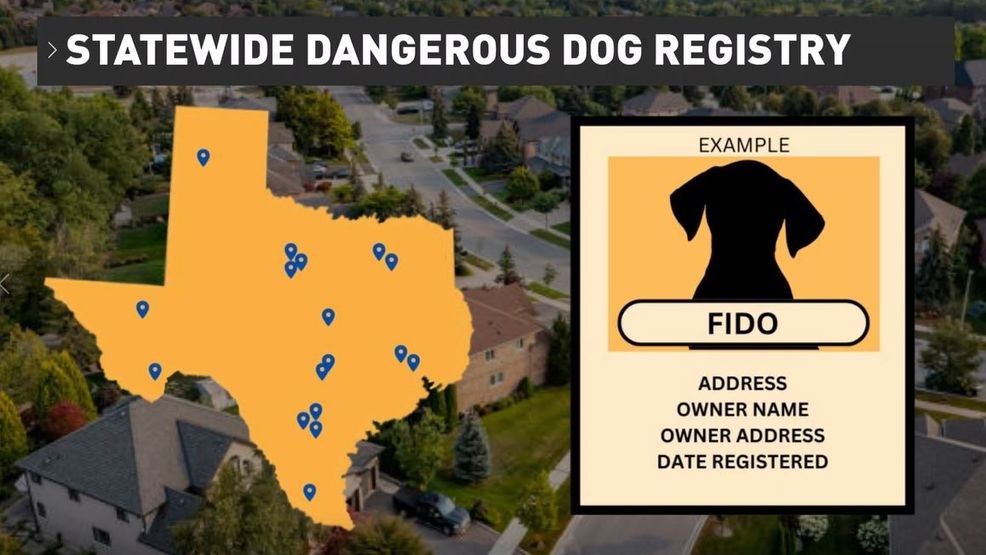
SAN ANTONIO —When moving into a new neighborhood, many Texans check crime maps and sex offender registries for safety.
In San Antonio and a few other cities, residents have an additional resource: a dangerous dog registry. Now, state lawmakers want to bring this tool to all Texans.
San Antonio launched its dangerous dog registry about a year ago, shortly after the News 4 I-Team created a similar resource.
For months, the I-Team fought for transparency, ensuring residents could access information about dogs with violent histories.
The city has now expanded the database to include dangerous and aggressive dogs.
This local effort caught the attention of state representatives, who aim to make such a registry available statewide.
State Rep. Liz Campos is championing the idea of a statewide database.
“People need to know who their neighbors are,” Campos said. “It’s just a matter of putting it out there, making sure the messaging is appropriate, and letting people know that these registries do exist.”
The database would consolidate existing dangerous dog registries from cities like San Antonio, Austin, Dallas, and Arlington, ensuring all Texans can access this critical information.
“The dangerous dog issue is just not in San Antonio; it’s throughout Texas,” Campos noted.
She emphasized the need for greater transparency with Texas’ rapidly growing population.
The idea isn’t a new one.
Florida attempted to create a similar registry after a fatal dog attack, but the bill stalled.
The Pam Rock Act would have provided residents with a searchable database of dogs containing information regarding dogs deemed hazardous, which is what the state calls their ‘dangerous’ dogs.
The Florida registry would have included the dog’s name, photograph, chip, sterilization, and rabies vaccination records and evidence of a “proper” enclosure with dangerous dog signs would fill out the registry.
Senator José Menéndez expressed support when we spoke to him about the idea last year.
“I think it would be a great idea for the state to require all cities to create this,” Menendez said.
Even if it were limited to larger cities, Menéndez believes such a registry could help prevent future attacks.
When your dog is registered as dangerous in Texas, it follows the dog for its entire life.
But what if the owner moves to another city?
The law says you’re supposed to let the new jurisdiction know about your dog, but experts we spoke to say, that doesn’t always happen.
“I have found that in representing nothing but dog bite victims for the last 30 years, the animal control departments do not talk to each other,” said Kenneth M. Phillips, an attorney specializing in dog attack cases.
Phillips says that makes it tough to hold irresponsible dog owners accountable.
“That’s really important for the animal control departments in different cities and in different states to communicate with each other. And I will tell you flat out they don’t, we just don’t do it,” Phillips said.
But he says a registry might prompt some of that communication between cities.
In addition to the registry, Campos has reintroduced the Ramon Najera Act, named after a San Antonio man who was fatally attacked by dogs in 2023.
The bill, which San Antonio leaders supported, passed both houses last session but was vetoed by the governor. Campos has spent months refining the bill to ensure it succeeds this time.
“I think the statewide registry is a great idea to keep track of these dogs,” Campos said, adding that while it won’t solve all issues, it’s a crucial step toward safety.
Lawmakers return to Austin to begin their work next week.
To report a dangerous dog in San Antonio, call 311 (210-207-6000) or visit SA.gov/ACS. If a dangerous dog is posing an immediate threat to life, please call 911.
This post was originally published on this site be sure to check out more of their content.












































